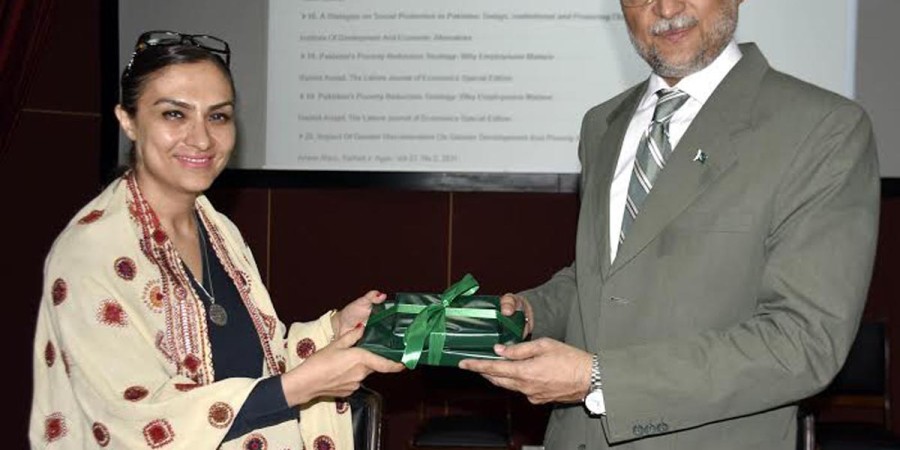BISP launches reports on “Population of Pakistan: an Analysis of NSER”

ISLAMABAD, 29 JULY (DNA) – Economic growth, equitable wealth distribution and competitive societies are pivotal in eliminating poverty. We have made commendable progress towards achieving macroeconomic stability and results of incumbent government’s policies are clearly evident as Pakistan is being referred as emerging market for foreign investment.
This was stated by Federal Minister for Planning, Development and Reform, Prof Ahsan Iqbal while addressing as chief guest at the launch of series of research studies titled “Population of Pakistan: An analysis of NSER 2010-2011”
These research studies were conducted by Pakistan Institute of Development Economics (PIDE), in collaboration with UNICEF, on National Socio-Economic Registry (NSER) 2010-2011 of BISP.
These reports highlight six themes at national and regional levels with comparative analysis; population dynamics, poverty profile, child education, youth and employment participation, disabled population and housing conditions that would further help to design appropriate policies not only at BISP level but at national level as well.
The event was attended by academicians, diplomats, representatives of national and international organizations, development partners, civil society, media and government officials.
In her welcome note, Minister of State and Chairperson BISP MNA Marvi Memon said that social safety net programs must be backed by scientific research for accurate targeting and effective implementation.
These studies would not only help to gauge the impact of BISP on beneficiaries but would assist to improve program’s outreach, efficiency and transparency. Highlighting the findings of research studies, Chairperson BISP said that around 12.3 million children of primary school age are out of school. BISP has succeeded in bringing 1.3 million children to school and 2 billion rupees have been disbursed as stipend in 2015-16 under WeT initiative.
Pakistan is a young country with half the population aged less than 20 years. This demographic dividend needs to be reaped through effective policy reforms as unemployment rate is higher among youth and more than two-third of youth is self-employed. She further added that the prevalence of disability has reduced from 2.5% in 1998 to 1.7% in 2010. More than 73% population is facing crowding problems and around 38% are residing in one room housing. As poverty has a direct correlation with these indicators, they need to be taken into account while policy making.
Prof Ahsan Iqbal reiterated that Vision 2025 is uniquely designed to transform Pakistan into socially and economically stable country. The 10 year plan adopts a multi-pillared approach aimed at rectifying or improving some of Pakistan’s most deficient areas. The plan sets the direction for investing in people by developing human and social capital and achieving sustainable and inclusive growth.
The Federal Minister acknowledged BISP as the custodian of NSER, that is a unique data bank and a source for evidence based studies and effective policy making. He further appreciated the role of BISP as the national social safety net. He added that disbursement of 412 billion Rs till June 2016, enrollment of 1.3 million children in schools and BISP E-commerce is investment in human capital development.
This investment would not only reform Pakistan but would contribute towards attainment of sustainable development goals (SDGs) as well. On the occasion, Ahsan Iqbal also proposed to conduct a survey on widows, orphans and disabled persons having an income below certain level so that they can be brought under state social welfare programs.
Secretary BISP Saleem Ahmed Ranjha thanked the PIDE research team and stated that these reports are welcome addition in literature and would assist government to develop and implement evidence based targeted policies. During the event, Country Director UNICEF, Ms. Angela Kearney, Vice Chancellor PIDE, Dr. Asad Zaman and Dr. Dur-e-Nayab also addressed the audience. DNA
Related News
Rana Mashhood Meets Italian Ambassador Armellin
Rana Mashhood, Italy’s Ambassador Armellini Discuss Trade, Education, Legal Labor Mobility and Youth Cooperation toRead More

Pakistan hockey players revolt against management
In response to the players’ bold stand and the mounting public outcry, the Pakistan SportsRead More


Comments are Closed